


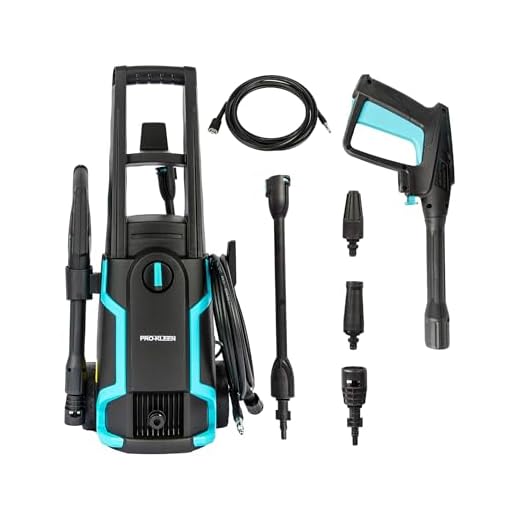
Using high-pressure cleaning devices can be a safe and effective way to maintain your outdoor spaces, provided you follow specific guidelines. As someone who has spent over a decade working with various brands and models, I can confidently say that adherence to safety measures significantly reduces risks associated with these machines.
First and foremost, always wear protective gear. Safety goggles, gloves, and boots will protect you from accidental splashes and flying debris. This simple step cannot be overlooked, as high-pressure streams can cause serious injuries. Additionally, ensure you’re aware of your surroundings to avoid accidents.
Proper equipment usage is another key aspect. Read the manufacturer’s instructions carefully, paying attention to recommended pressure settings for different surfaces. Using excessive force can strip paint, damage wood, or even crack concrete. Therefore, selecting the right nozzle and pressure setting for the task is crucial.
Electrical components introduce another layer of safety considerations. Check for damaged cords or plugs, and ensure your device is grounded. A GFCI (Ground Fault Circuit Interrupter) outlet is advisable to prevent electrical shocks when operating near water. Always ensure the area is clear of standing water before starting your cleaning tasks.
In summary, maintaining a cautious approach when operating these cleaning machines enhances safety for both the user and the surrounding environment. Knowledge, technique, and appropriate gear are key components in enjoying the benefits these machines offer while minimising potential hazards.
Are Electric Cleaning Machines Reliable?
Absolutely, these cleaning devices can be trustworthy when proper precautions are taken. Here are specific measures to ensure a secure experience:
- Always check the device for damage before use, particularly power cords and nozzles.
- Maintain a safe distance from electrical outlets when using these machines near water. Avoid puddles or wet surfaces.
- Utilise ground fault circuit interrupters (GFCIs) to prevent electric shock.
- Be vigilant about kinks or tangles in the power cord which could lead to wear and tear.
- Wear appropriate personal protective equipment, including safety goggles and closed-toe shoes, during operation.
Common Risks and How to Mitigate Them
Despite their convenience, the misuse of these devices can lead to injuries or accidents.
- Slip Hazards: Always operate on stable surfaces. Ensure that the environment is clear of obstacles.
- High-Pressure Injuries: Use caution with nozzle tips. Adjust pressure settings based on the surface being cleaned.
- Electrical Dangers: Never use near running water or in heavy rain. Ensure the equipment is unplugged during maintenance.
By adhering to these guidelines, the likelihood of incidents decreases significantly. Trust in these machines can be well-placed, provided safety remains a priority.
Understanding the Electrical Safety Features of Cleaning Devices
Prioritising electrical safety when utilising a cleaning device is paramount. Every model comes equipped with features designed to minimise risks associated with electricity and water. As a former expert in the field, I recommend focusing on certain specifications to ensure secure operation.
Ground Fault Circuit Interrupter (GFCI)
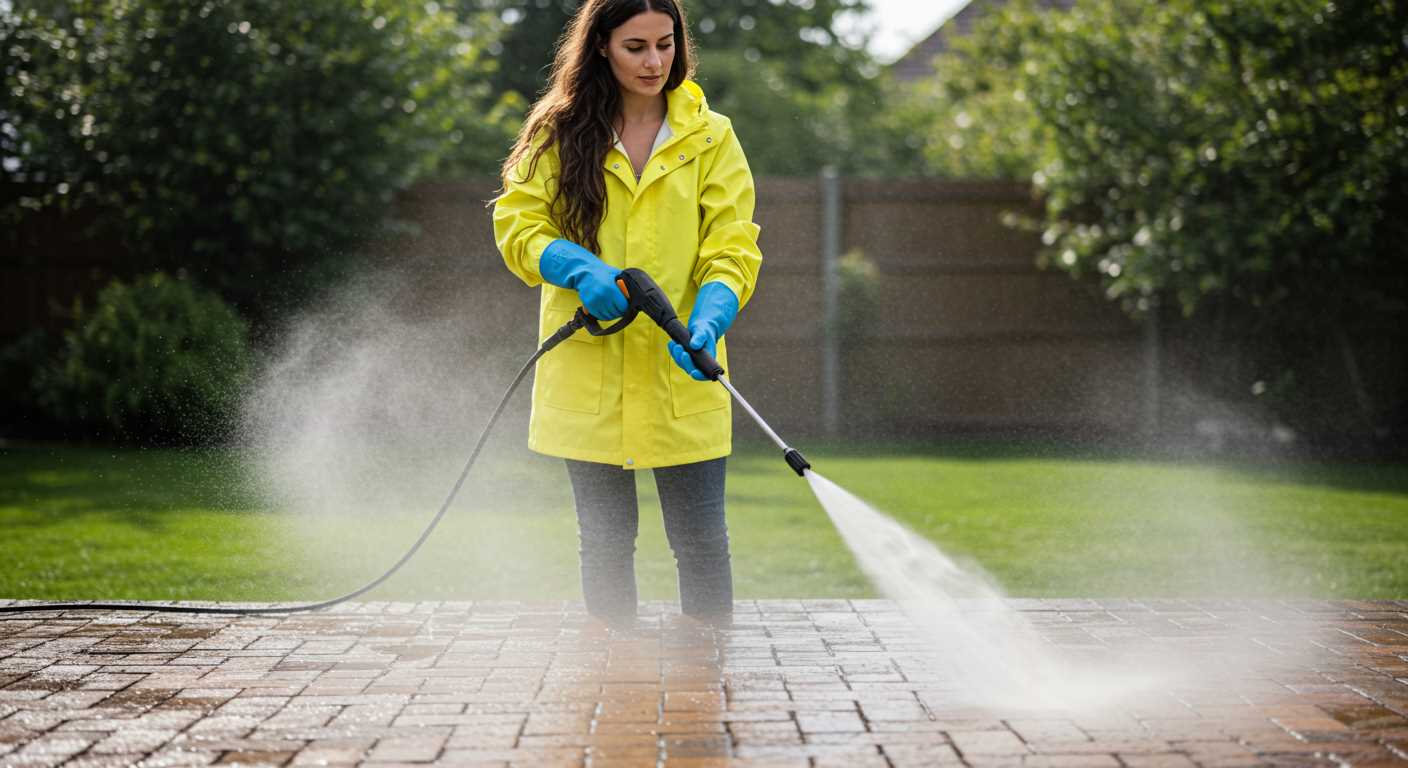
A GFCI is a vital safety feature that automatically cuts off power when it detects an imbalance between the incoming and outgoing electric current. This prevents potential electrical shocks, making it a necessity for units used outdoors or in damp environments. Always confirm that the machine you purchase includes this protective mechanism.
Insulation and Double Insulation
Devices with reinforced insulation provide enhanced protection against electrical hazards. Double insulation means there are two layers separating the electrical components from the outer casing. This reduces the risk of electrical failures and is particularly useful in creating a barrier against moisture ingress. Choose models boasting these features for improved security during use.
Regularly inspecting power cords for damage is also crucial. Any fraying or cuts should prompt immediate replacement or repair to avoid accidents. Following manufacturer guidelines for maintenance and storage further enhances safety, helping you enjoy efficient cleaning without compromising on protection.
Common Risks Associated with Electric Pressure Washers
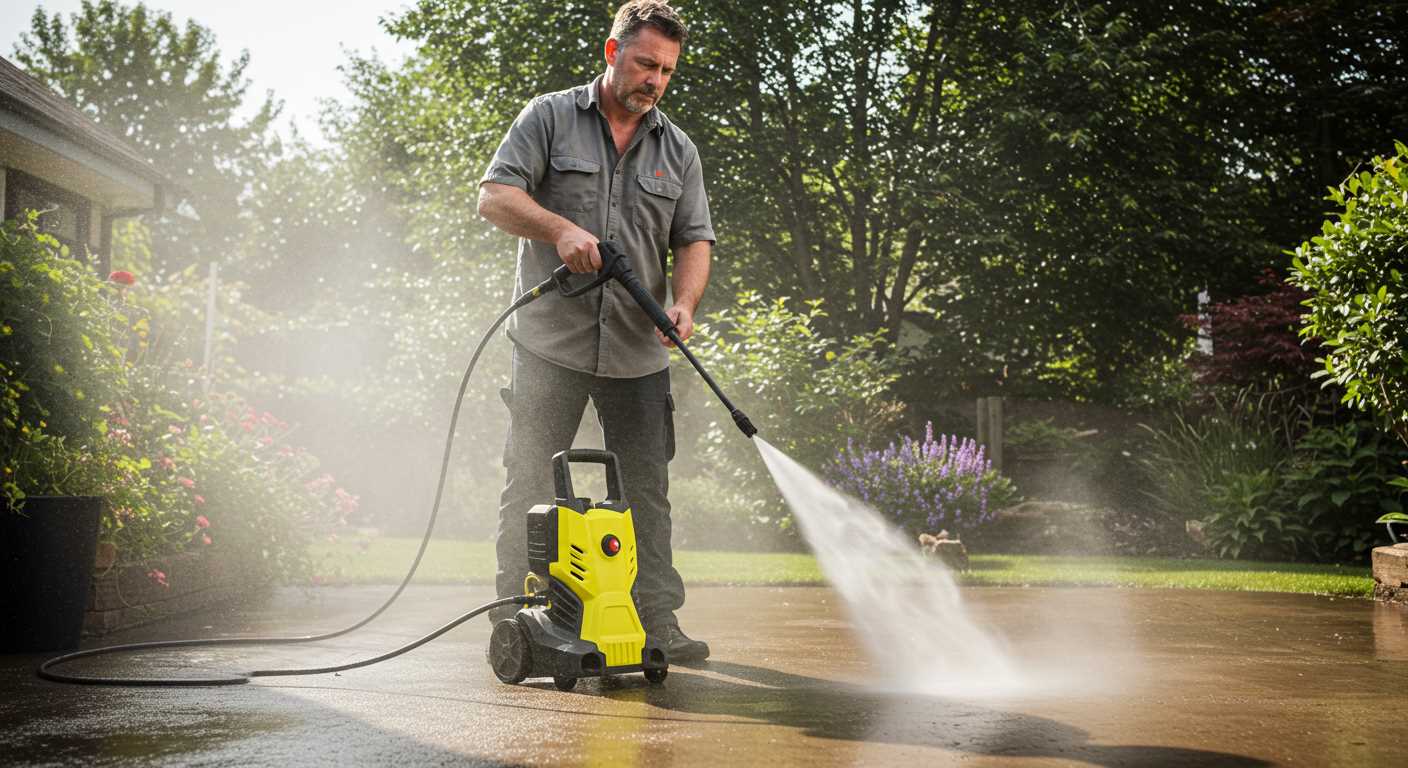
Firstly, high water pressure can lead to serious injuries if the nozzle is improperly directed. I’ve seen countless incidents where people have sustained cuts or puncture wounds from misusing these devices. Always point the nozzle away from the body, and be sure to wear protective gear, including gloves and goggles.
Water and electricity pose a dangerous combination. Even the slightest water contact with electrical components can lead to short circuits or electric shocks. Keep the washer away from wet areas and ensure all connections are secure and elevated to avoid any water intrusion.
The risk of slipping is heightened when using these machines, especially on wet surfaces. A sudden loss of balance can lead to falls and serious injuries. I recommend working on dry, stable ground whenever possible and using non-slip footwear.
Another common issue is improper use of attachments and accessories. Incorrect nozzles can cause unintended damage to surfaces or even the equipment itself. Only use manufacturer-recommended accessories and follow the guidelines regarding their application.
Overheating can occur if the unit is run continuously for extended periods. This can lead to equipment failure and potentially fire hazards. It’s wise to take regular breaks during operation to allow the machine to cool down.
Lastly, be cautious of the surrounding environment. Nearby plants, pets, or furniture can be damaged by strong water jets. Perform a thorough survey of the area before starting your task to avoid unintended consequences.
Best Practices for Safe Operation of Electric Pressure Washers
Always wear protective gear, including safety goggles, gloves, and non-slip footwear. This minimises the risk of injury from debris and high-pressure water streams.
Position the unit on a stable surface to prevent tipping during operation. Avoid operating on slopes or uneven ground.
Inspect the power cord beforehand. Look for wear or damage, and ensure the connection is secure. Use a GFCI (Ground Fault Circuit Interrupter) outlet to reduce the risk of electrical shock.
Never aim the nozzle at people, pets, or fragile objects. Maintain a safe distance during operation, typically at least 2 feet from surfaces, and adjust the spray angle accordingly.
Before cleaning any surface, test a small inconspicuous area to ensure compatibility and prevent damage.
Keep a clear path free of obstacles. Avoid using the device in wet conditions or during rain to prevent slipping and electrical hazards.
Power down when switching nozzles, clearing clogs, or when pausing for extended breaks. This helps avoid unintentional discharges.
After use, store the equipment in a dry, cool area and ensure the cord is properly coiled. Regular maintenance checks prolong the lifespan and performance of your device.
How to Choose a Safe Electric Pressure Cleaner for Home Use
Prioritise models with GFCI (Ground Fault Circuit Interrupter) protection to prevent electrical shocks. This feature automatically cuts off power in case of a fault. Look for cleaners with a high IP rating (Ingress Protection) to ensure they resist water and dust ingress effectively.
Check Ratings and Certifications
Investigate products certified by reputable standards like UL (Underwriters Laboratories) or CE (Conformité Européenne). These certifications indicate that the equipment meets essential safety standards, reflecting reliable manufacturing practices. Additionally, review customer feedback to gauge reliability and performance histories.
Review Power Specifications
Select units with appropriate wattage for your cleaning tasks. Generally, a cleaner with a wattage of at least 1600W suits most residential needs. Ensure the power cord is of sufficient gauge to handle the current without overheating, typically a 12 or 14-gauge cord is advisable for safety and efficiency.
Importance of Regular Maintenance for Safety
Regular upkeep is non-negotiable for ensuring optimal performance and minimizing hazards. Inspect seals, hoses, and connections frequently for signs of wear. Replace any damaged components promptly to prevent leaks and electrical faults.
Routine Checkups
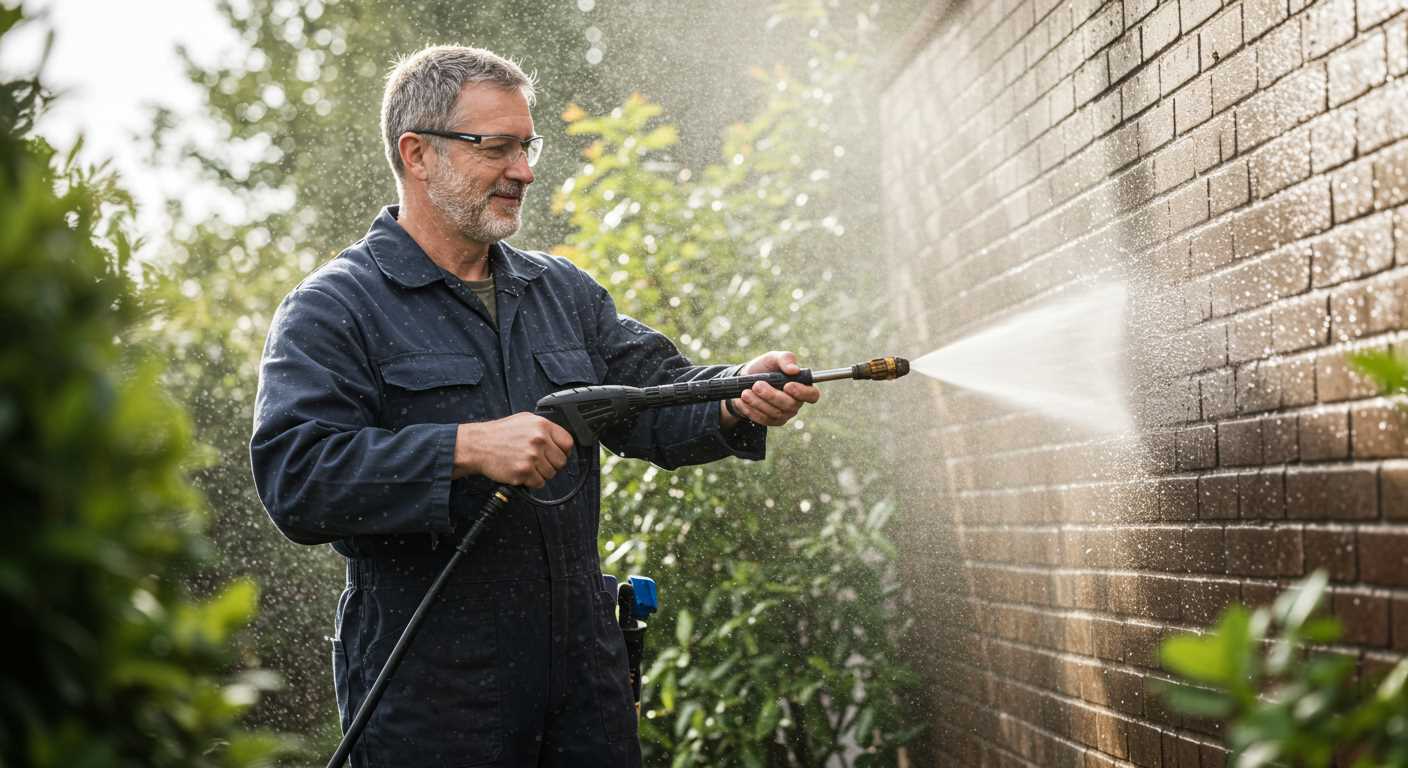
Conducting periodic inspections of the power cord can avert electrical hazards. Look for frays, cracks, or exposed wires. If any issues arise, replace the cord immediately. It’s wise to also verify that plugs are securely seated in outlets. Loose connections can cause overheating and pose risks.
Cleanliness Matters
Keep the unit free from debris and dirt. Buildup may lead to overheating or blockages that can escalate into more significant issues. Ensure filters are clean and functioning correctly. Regularly flushing the system with clean water aids in preventing potential clogs and maintains efficiency.
Documenting and scheduling maintenance activities can help maintain a safe operating environment. Following these guidelines not only enhances the lifespan of your equipment but also ensures a secure and worry-free experience during use.
What to Do in Case of an Accident with a Pressure Washer
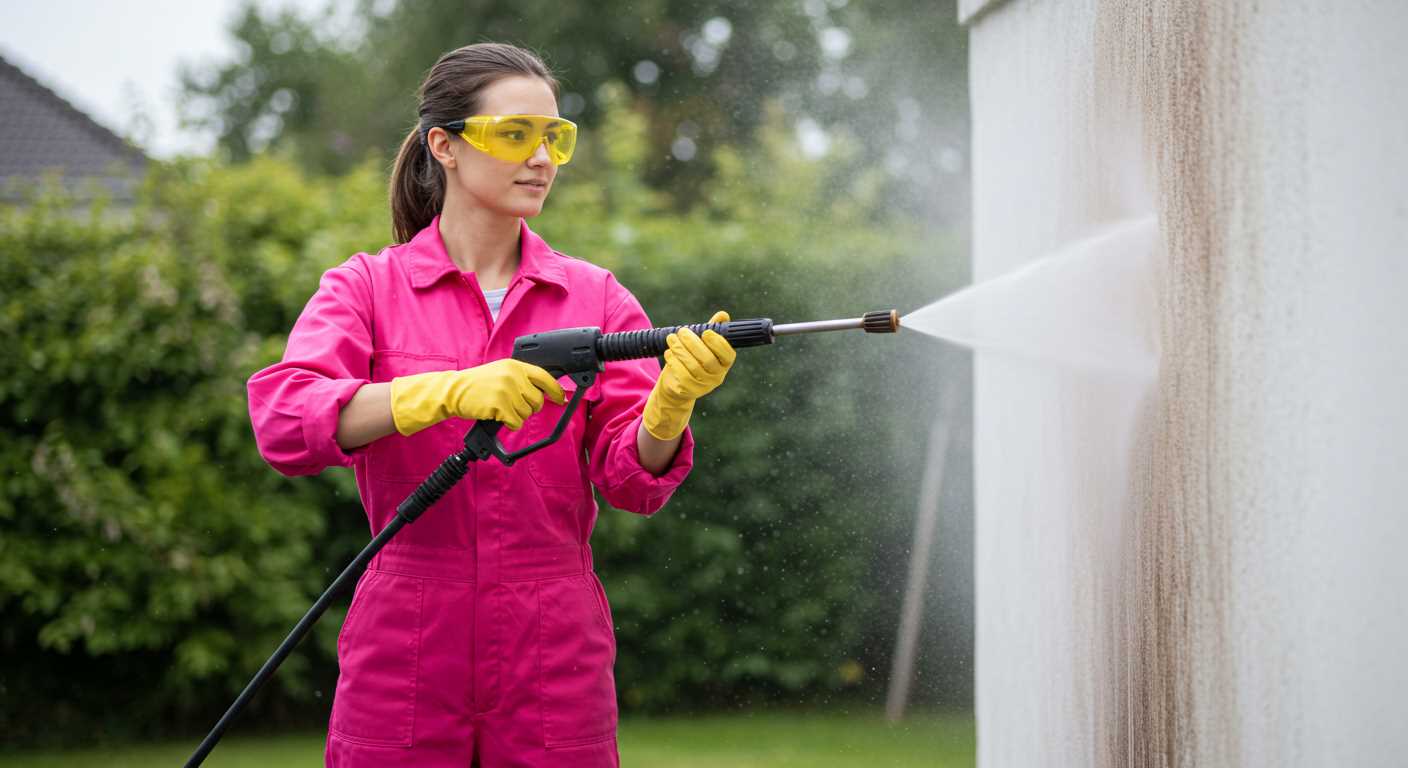
In the unfortunate event of an incident involving a washing device, immediate action is crucial. First, disconnect the power supply to prevent further electrical hazards. Ensure your hands are dry to minimise the risk of electrical shock while handling the plug or switch.
Steps to Follow
| Step | Description |
|---|---|
| 1 | Check for Injuries: Assess yourself and others for any injuries. If anyone is hurt, call emergency services immediately. |
| 2 | Relocate to Safety: Move away from the area if water is spraying or if there is a risk of further accidents. |
| 3 | Inspect the Equipment: Once it is safe, inspect the device for any visible damage or leaks before attempting to operate it again. |
| 4 | Document the Incident: Take photographs or notes of the situation and any injuries for your records. |
| 5 | Contact the Manufacturer: If the device malfunctioned, reach out to the manufacturer for guidance and possible repairs or replacements. |
| 6 | Review Safety Practices: Reflect on the incident to identify any lapses in safety procedures and improve future practices. |
Training and knowledge about safe operation contribute significantly to accident prevention. After an incident, consider reviewing safety instructions and seek professional training if necessary. Prioritising safety ensures tasks can be carried out efficiently with minimal risk.






